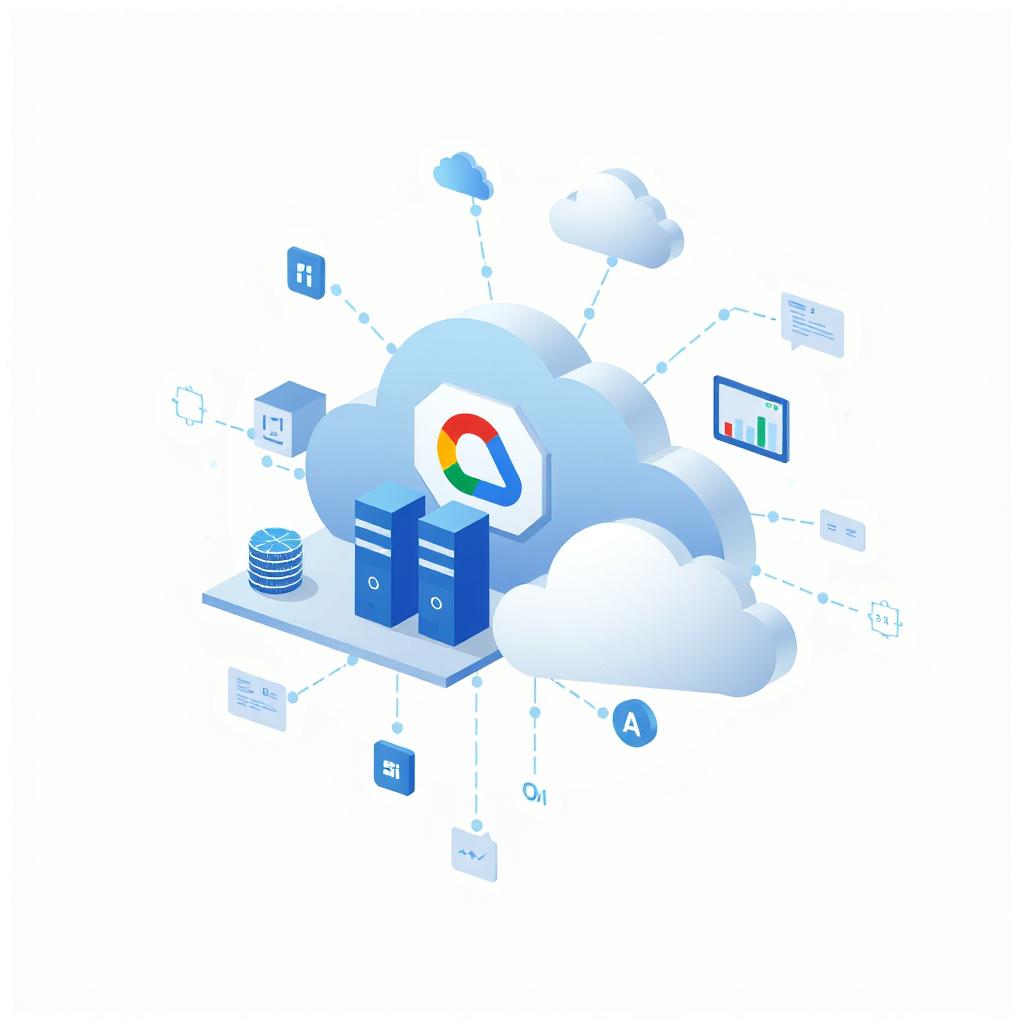Table of Contents
ToggleIntroduction to GCP Services
- Google Cloud Platform (GCP) is a suite of cloud computing services offered by Google, providing infrastructure, platform, and software solutions for businesses and developers. With its scalable and reliable architecture, GCP has become one of the leading cloud platforms alongside AWS and Microsoft Azure.
- GCP services cater to various domains, including computing, storage, networking, security, machine learning, data analytics, and DevOps. This article provides an in-depth overview of GCP services, their functionalities, and how they help businesses achieve scalability and efficiency.
Key Features of Google Cloud Platform
GCP stands out due to its advanced features, including:
- Global Infrastructure: A vast network of data centers across the world.
- Security and Compliance: High-level security measures with compliance certifications.
- Scalability and Performance: Auto-scaling and high-performance computing.
- Cost Efficiency: Pay-as-you-go pricing models.
- AI & Machine Learning Capabilities: Pre-trained models and powerful ML tools.
Core GCP Services
1. Compute Services
a) Google Compute Engine (GCE)
- Google Compute Engine provides virtual machines (VMs) for running applications. It supports custom machine types, preemptible VMs, and auto-scaling.
b) Google Kubernetes Engine (GKE)
- GKE is a managed Kubernetes service that enables automated deployment, scaling, and management of containerized applications.
c) Cloud Run
- Cloud Run allows developers to deploy stateless applications in a serverless environment using containers.
d) App Engine
- Google App Engine provides a fully managed platform for building and hosting web applications without worrying about infrastructure management.
2. Storage and Databases
a) Cloud Storage
- Cloud Storage offers scalable object storage with various classes such as Standard, Nearline, Coldline, and Archive for different use cases.
b) Cloud SQL
- Cloud SQL is a fully managed relational database service supporting MySQL, PostgreSQL, and SQL Server.
c) Firestore
- Firestore is a NoSQL document database that allows real-time syncing and offline capabilities.
d) Bigtable
- Cloud Bigtable is a scalable NoSQL database designed for large analytical and operational workloads.
e) Spanner
- Spanner is a globally distributed, horizontally scalable relational database service that supports strong consistency.
3. Networking Services
a) Virtual Private Cloud (VPC)
- GCP’s VPC allows users to create and manage virtual networks with customizable IP addressing and firewall rules.
b) Cloud Load Balancing
- This service provides global-scale load balancing to distribute traffic efficiently across multiple instances.
c) Cloud CDN
- Cloud CDN (Content Delivery Network) accelerates web content delivery by caching it at various edge locations.
d) Cloud Interconnect
- Cloud Interconnect enables high-bandwidth and low-latency connections between on-premises infrastructure and GCP.
4. Security and Identity Services
a) Identity and Access Management (IAM)
- IAM helps manage access to resources by defining roles and permissions for users.
b) Security Command Center
- This service provides a centralized view of security threats across all GCP services.
c) Cloud Armor
- Cloud Armor protects against DDoS attacks and ensures secure application access.
d) Chronicle
- Chronicle offers advanced threat detection and security analytics to enhance cybersecurity measures.
5. AI & Machine Learning Services
a) Vertex AI
- Vertex AI is a unified AI platform that allows users to build, deploy, and scale machine learning models.
b) AutoML
- AutoML provides a suite of machine learning models for vision, natural language processing, and structured data without requiring deep ML expertise.
c) AI Platform
- AI Platform is a flexible service for training, deploying, and managing machine learning models.
d) Cloud Speech-to-Text and Text-to-Speech
- These services enable voice recognition and speech synthesis applications.
e) Cloud Vision
- Cloud Vision provides image recognition and analysis using powerful machine learning models.
6. Data Analytics Services
a) BigQuery
- BigQuery is a fully managed data warehouse that allows fast SQL queries on large datasets.
b) Dataflow
- Dataflow enables real-time and batch data processing using Apache Beam.
c) Dataproc
- Dataproc is a managed Apache Spark and Hadoop service for big data processing.
d) Pub/Sub
- Pub/Sub is a messaging service that enables event-driven architectures and asynchronous communication.
7. DevOps and Developer Tools
a) Cloud Build
- Cloud Build automates the process of building, testing, and deploying applications.
b) Cloud Functions
- Cloud Functions is a serverless compute service that runs event-driven code.
c) Artifact Registry
- Artifact Registry stores and manages container images and other build artifacts.
d) Cloud Source Repositories
- A fully managed Git repository service for storing and collaborating on code.
8. Internet of Things (IoT)
a) IoT Core
- IoT Core provides a fully managed service for securely connecting and managing IoT devices at scale.
9. Hybrid and Multi-cloud Solutions
a) Anthos
- Anthos is a multi-cloud management platform that allows running workloads across on-premises, GCP, and third-party clouds.
b) Cloud Run for Anthos
- Enables running serverless workloads on Kubernetes clusters.
Benefits of Using GCP Services
1. Cost Optimization
- GCP follows a pay-as-you-go model, offering sustained use discounts and committed use contracts.
2. Enhanced Security
- GCP provides robust security features such as encryption, DDoS protection, and IAM.
3. High Scalability
- GCP’s auto-scaling capabilities ensure that applications can handle fluctuating workloads efficiently.
4. Seamless Integration
- GCP services integrate well with open-source tools and third-party applications.
5. Reliability and Performance
- With its global infrastructure, GCP ensures high uptime and low latency for applications.
Conclusion
- Google Cloud Platform (GCP) offers a diverse range of services catering to computing, storage, networking, security, AI, and DevOps. Businesses of all sizes can leverage GCP to build scalable, secure, and high-performance applications. Whether you’re a startup or an enterprise, GCP provides the tools and infrastructure necessary to support your cloud computing needs.






